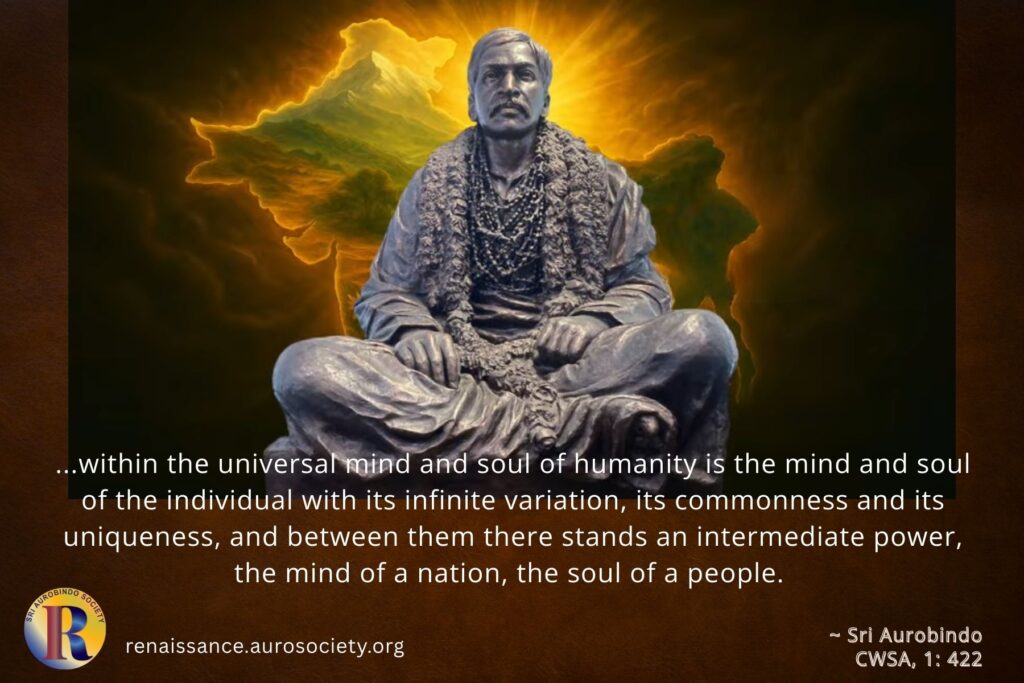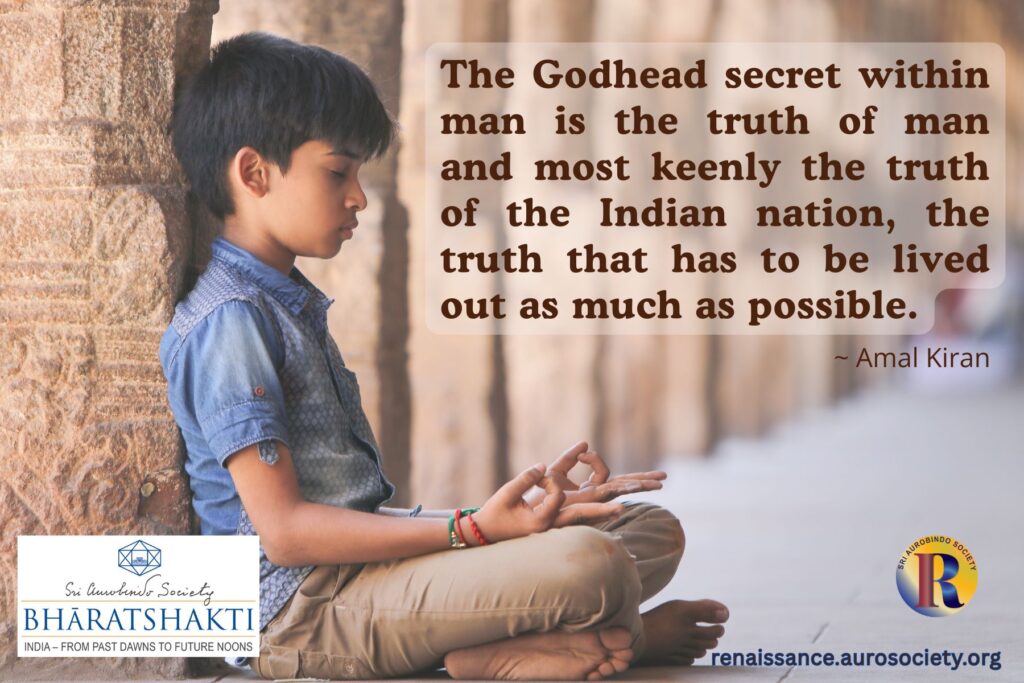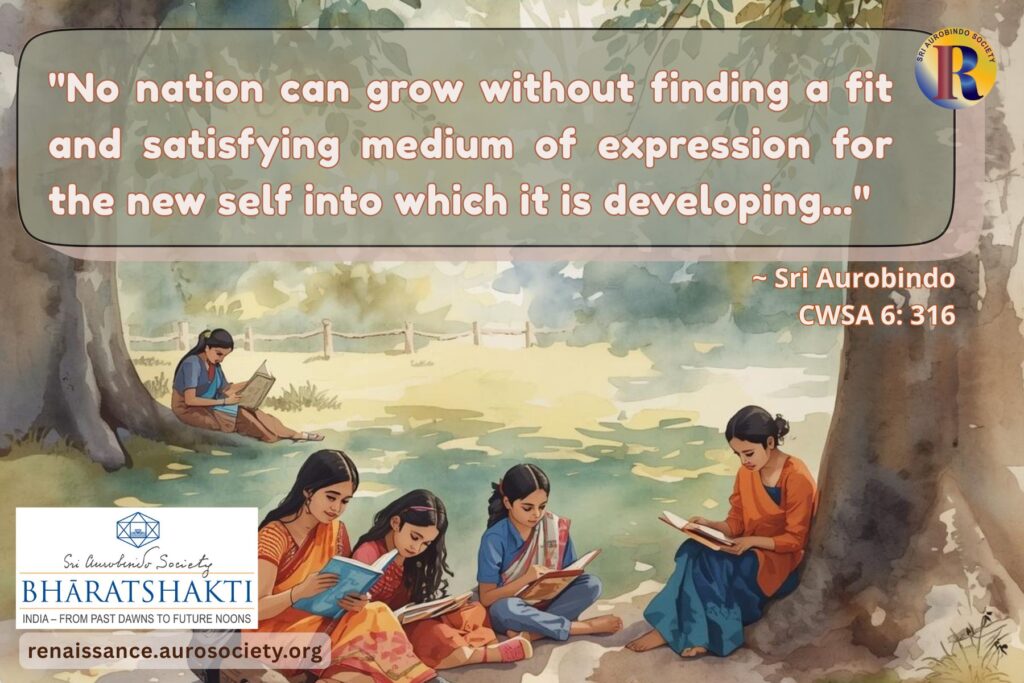Volume 1, Issue 8
Author: Beloo Mehra
Editor’s Note: India needs Shakti alone, said Sri Aurobindo once. What can help Indians, and especially the youth of India grow in Shakti? What factors hold us back? What is necessary to infuse our knowledge with courage? What needs to be done to strengthen our society from within? These and other related questions were explored in this conversation with Sandeep Balakrishna, presented here in three parts.

INTRODUCTION
“If India is to survive, she must be made young again. Rushing and billowing streams of energy must be poured into her; her soul must become, as it was in the old times, like the surges, vast, puissant, calm or turbulent at will, an ocean of action or of force.”
Sri Aurobindo wrote these lines in his ‘Bhawani Mandir.’ (CWSA, Vol. 6, p. 83)
Today’s India is, demographically speaking, a young nation. But is that young energy on its way to becoming an “ocean of action or of force”? And more importantly, have we – our education, our popular culture, our media, our system – been able to give the right direction to this young energy so that when it becomes an “ocean of action or of force” it is through creative and constructive pursuits meant to raise the individual, the society, the humanity and not be a destructive force?
“We in India fail in all things for want of Shakti.”
Sri Aurobindo wrote this too in the same work. And we find another important reminder there that our knowledge too needs Shakti, otherwise it is a dead thing, he said. What will one do with knowledge of the highest ideal, the highest vision without having the shakti to execute the vision, the conscious-will, the inner force, power and strength to live the idea? India needs Shakti alone, he said forcefully.
This was written in early 1900s, but the truth rings even more true today, in 21st century.
If we have to be reborn as a society, as a nation, if we have to raise ourselves to work toward the true mission of India, to fulfill India’s true destiny, we must grow in Shakti.
What can help Indians, and especially the youth of India grow in Shakti? What are some of the factors holding us back? What is necessary to infuse our knowledge with courage? What needs to be done to strengthen our society from within?
These are some questions that must be reflected upon in all honesty and sincerity, without the façade of political correctness or ideological prejudice. A clear look at these is important, especially for the times we live in, the times when, according to some voices, a new India is being reborn.
The following conversation with Sandeep Balakrishna explores some of these and other related questions. The conversation is grounded in the present-day socio-cultural-political realities of India, and doesn’t shy away from accepting the contemporary truth ‘as is’. But the purpose is not to stay content with ‘what is’, but rather to figure out ‘what can be’. This is what makes this conversation relevant for a multi-faceted Indian renaissance that we aspire.
Many thanks to Isha Bidwaikar who painstakingly transcribed the entire conversation.
~ Beloo Mehra
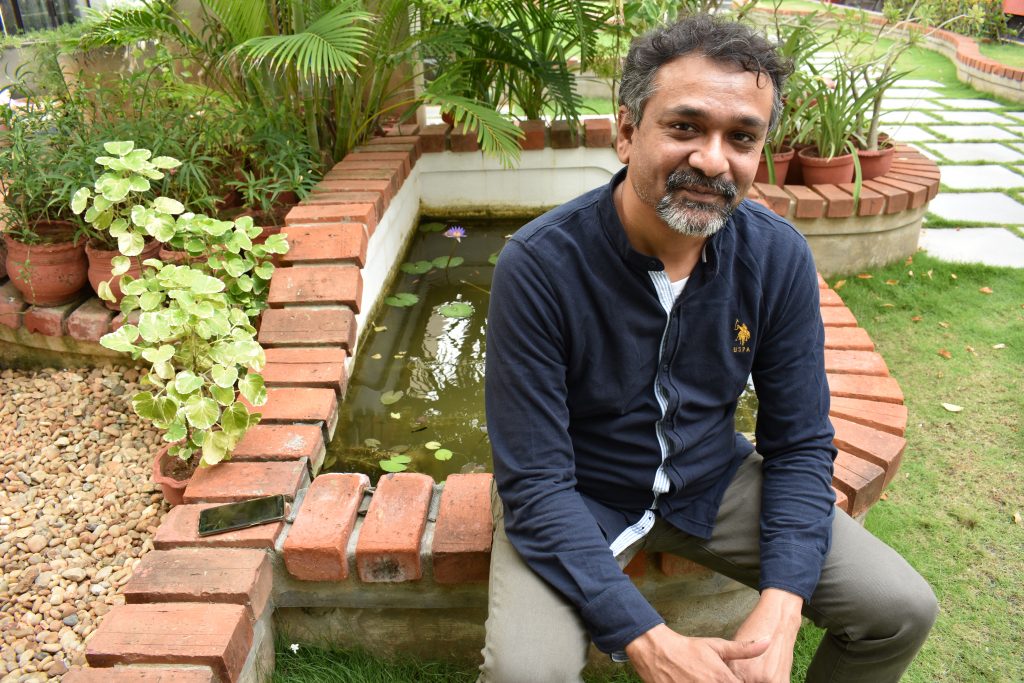
Beloo Mehra: Thank you, Sandeep ji, for taking the time to speak with us.
Sandeep Balakrishna: Sure! It is my pleasure, and yes, let’s try to have it as a conversation instead of an interview.
BM: Sure! One of your key strengths is your ability to create a link between the deep-rooted cultural ethos of Indian civilisational temperament with the contemporary social-cultural concerns. Can you speak a little about your thought process as to how you do this so effectively? This could be informative for others who are also interested in pursuing this kind of an Indian way of seeking, where we see a continuity or rather a harmony between an intellectual and a more inner quest – or rather one can say where intellectual quest is in the light of the deeper inner seeking of the truth. How can they go about this, first for their own understanding and then perhaps for communicating to others?
SB: Actually, it is not as difficult as it sounds. First thing is to equip oneself solidly. It could be any discipline – science or medicine or whatever, one has to be strong in the fundamentals. Unless your fundamentals are strong, you may, sort of intuitively, know that there is some link but you don’t really know what that is. So, to get there you have to master your fundamentals. You have to completely digest them and then the thing kind of reveals itself.
So, you must invest time and energy, you need to take out the time and make an effort to master these basics and read what I call are the masters. Masters could be anything ranging from the Vedanta, Bhagavad Gita, Ramayana, some of the Puranas and some really good classic writers of literature. It could be Kalidasa, it could be Shakespeare, could be anybody, those who are universally regarded as masters.
To have a solid grasp on the basics, that is number one.
Number two is you have to be alert and aware and be a good observer of social and cultural trends that are going on around you, and then you need to review your own life and the way you were brought up. The society around you keeps changing continuously but you won’t even know about it.
The best instance I can give you, for example, is that let’s say you are basically from Delhi and you fly out of Delhi and settle down in Bangalore or Australia or US or somewhere and you stay there for 20 years. You might come, you know, once every year or once or twice in two years or three years, so that distance might mask a lot of things.
But all of a sudden, you come back to your native place, say to Delhi, after twenty years and you will see that you have come to a totally new world. This is verifiable by individual experience.
Why does this happen?
On the other hand, if you have stayed in the same locality for these 20 years instead of migrating to some other place or country, the changes are happening all around you. But although you notice it, it is so much a part of your everyday life that you don’t really notice it, which means you don’t really observe it.
When you observe, the next step is to study them and with the kind of solid grounding in your fundamentals I just spoke about, the links will automatically begin to unravel themselves. That’s pretty much how I think I can explain how I write.
BM: Let us talk about this concern raised by many thinking people, all across the world actually, about the dumbing down of the mind – may be the result of mindless education, mass media or whatever. As people working in the area of education, concerned about the future generations of India, how should we address this?
How can we be a force or an instrument – whether through our own individual work upon ourselves and as part of institutions or organisations such as ours or any other? What should be or could be done, in your view, to perhaps apply some kind of a speed-breaker on this excessive dumbing down of Indian mind?
SB: Given the extent to which we have been dumbed down I don’t even know where to begin. But I’ll ask the same question back to you. Can you tell me, in brief, the kind of activities you do here?
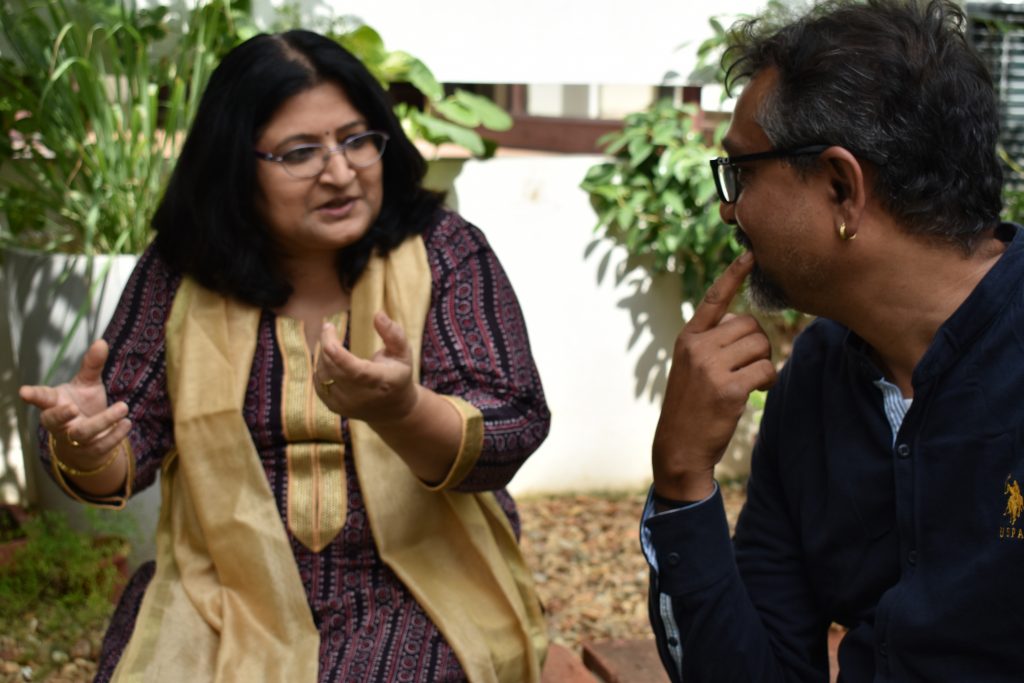
BM: Our mission is to create plethora of learning activities in several aspects of Indian culture. Appreciation and learning-teaching of Sanskrit is also taken up in connection with the Indian ethos and various other aspects of Indian cultural studies. Whether its history, sociology, scriptures, political history of India, we approach the study of these through various projects, in diverse ways. We work with children, adult learners, universities, schools, other institutions. We have programmes and workshops for adults in Sanskrit, scriptures, and other topics as well.
SB: So basically, what you are saying is these various learning and research activities are all rooted in Indian ethos. That’s all we need to do.
But we have also to see why this dumbing down has been happening? It is happening because our education system has broken down completely. It has broken down to the point that I don’t think it can be fixed in its present form. It can’t be repaired; I think it is beyond repair.
And this is also, partly, because of the breakdown of the family system. Earlier the father or mother would take a stick and set things right if the child would even begin to go astray…, you know what I mean…there was a certain kind of strict discipline which would be imposed on the children.
And by the time the children were 16 or 17 years old, they would be set for life as far as knowing and doing the right thing is concerned. They would know that their mother or father would scold if they did something wrong, and innately they would know that this is not the right way to go. That is no longer there. So, we need to fix our broken family system, fix the education system. Fundamentally, all these changes have to occur at the level of family and also the immediate community.
CONTINUED IN PART 2…
Cover image: Detail from a folio from a manuscript of the Mahabharata, 1516 (source)

